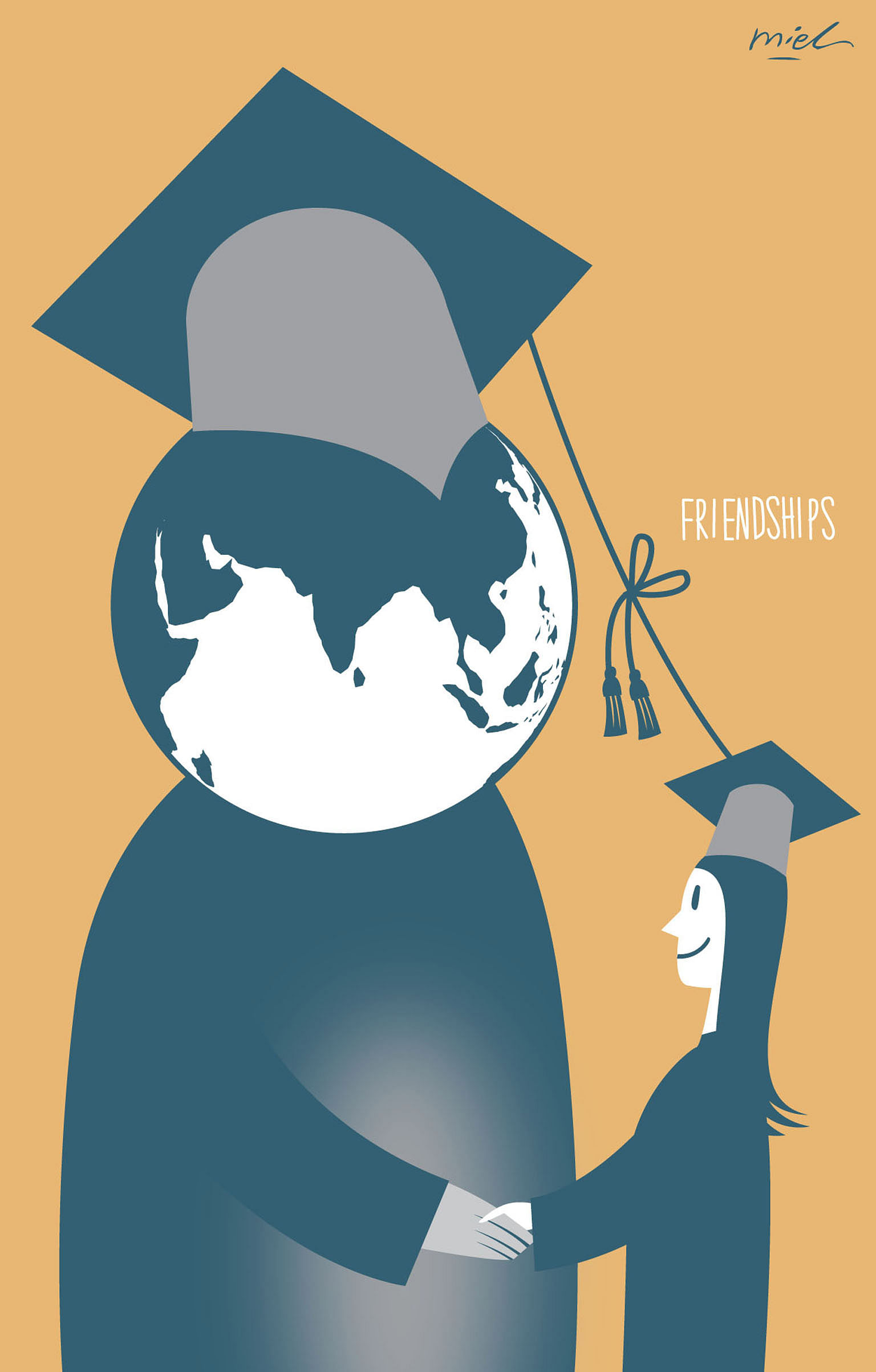Amid the gloom of an economic downturn, the prospect of a challenging job market and the Government's exhortations to upgrade our skills, many of my friends are looking into the next step to propel their career forward.
One option that seems to promise bigger salaries and a higher rung on the management ladder is to enrol in a top business school for a Master of Business Administration (MBA).
This has become a heated topic of discussion among some of my friends, who are mostly professionals with about four to six years of work experience.
They are not alone. The Economist magazine observed wryly that "these days, questioning the value of a business degree is one of the few growth industries".
Most detractors had two gripes.

Many senior and successful people felt that learning on the job was more important.
Several pointed out that MBA graduates still had to be taught managerial skills and had to be treated like most new employees.
This made them dismissive of the MBA's rigour in making graduates more skilled.
This view is validated by famed Silicon Valley "super angel" investor Dave McClure, who founded the incubator 500 Startups. He told an audience here at a start-up event several years ago that MBAs were a "time-waster".
"If you fail, you've experienced it. It's a better lesson than reading about other people's successes in an MBA class," he said.
With the proliferation of online courses like Coursera, it is possible to learn some of the skills, at least theoretically, on your own.
But in my interviews with MBA graduates, many felt they could not have learnt as much and as quickly about so many different industries in this way.
At an information session at Insead last week, I was struck by the soft skills, such as negotiation, that can be learnt in an MBA class through real-life situations.
I was also impressed by the graduate business school's focus on cultural understanding.
There are enforced seating arrangements and group projects designed for students from different countries to work on together and discuss.
This made me recall some top chief executives' comments on Singaporeans, many of whom they see as being more unwilling than other nationalities to relocate for work, and being less skilled in managing and working with people from other cultures.
I would consider the soft skill of cross-cultural communication an increasingly important one for young Singaporeans to acquire as the country pitches itself as a regional and global economic hub.
The other criticism of the MBA, which is often voiced more vociferously, is its cost.
Given that MBA programmes are often marketed as a short cut to higher earnings, this aspect should be examined rigorously.
This year, Insead's 10-month MBA costs €73,500 (S$112,000) for tuition. That does not include accommodation and living expenses. The top American MBA programmes, which typically take two years to complete, cost about US$70,000 (S$97,000)for tuition. Closer to home, tuition for a full-time MBA at the National University of Singapore costs $62,000 for two semesters. Fees at the Singapore Management University are about the same.
Drawing on Singapore-specific data from Insead, the median annual income for Singaporean MBA graduates, most of whom I assume work here, has hovered around $140,000 for the past few years. That is slightly more than the cost of an Insead MBA for a year, excluding lost wages.
An investment in an MBA ranked first by the Financial Times this year, which could be recouped in between one and two years, seems like a good investment, particularly if your salary was very much lower than $140,000.
But returns on this investment should not be based only on income. Many MBA graduates I met were most enthused about the network they gained.
I checked out some notable MBA alumni in Singapore to see what such a network here looks like.
In the public sector, notable examples include Minister in the Prime Minister's Office Chan Chun Sing, who was in the Massachusetts Institute of Technology's 12-month Sloan Fellows programme, as well as Senior Minister of State for Defence Ong Ye Kung, who has an MBA from the Institute of Management Development in Lausanne, Switzerland.
Ms Grace Fu, the Minister for Culture, Community and Youth, has an MBA from NUS.
For those interested in joining start-ups or looking for a partner to start one, business school seems like a good place to begin.
Other examples include Grab founders Anthony Tan and Tan Hooi Ling, who met at Harvard Business School and came up with the idea that won them runner-up position in the school's business plan contest, as well as Mr Roger Egan and Mr Vikram Rupani, who met at Insead and went on to start online grocery service RedMart.
Another success story is Mr James Tan, co-founder of China's second-largest group buying site 55tuan, now called Wowo.
It listed on Nasdaq last year, raising about US$37.3 million. Mr Tan hit on his winning idea when he went to Tsinghua University in Beijing for a two-year MBA in 2008 and met his four co-founders.
But a word of caution: The MBA network in Singapore may be shrinking. Based on the number of people taking the GMAT, an entrance requirement to apply for an MBA, the number of applicants here has been falling since 2009, with the exception of 2012.
Perhaps it is best to go back to basics: What makes a good investment?
From the many columns in the Invest pages, what most savvy investors talk about when they discuss a good investment is often related to their relationships and personal development.
In my opinion, an MBA is a good investment if you are genuinely interested in business-related topics - the better if the MBA's focus is specific and you want to find people with whom you can develop in tandem, with common career and industry interests.
Shared interests and experiences are instrumental in developing deep friendships.
I invested in a two-year master's degree programme in London and Beijing, which helped me to become more comfortable with economics and gave me the confidence to switch to a role in business journalism.
I had wondered if I had done it too early in my career, as a senior editor quizzed me when I decided to leave. But I often think about two of my best friends, whom I would not have met if I had gone to graduate school later. Neither of them works in Singapore, but with common interests in Chinese politics and economy, as well as shared experiences, we are still sending one another weekly e-mails and planning holidays together two years later.
As MBA consultant Laura Freedman said to me: "I get to go around the world and have people I can call friends from a programme which I did 25 years ago."
That sounds like a pretty good investment to me.


